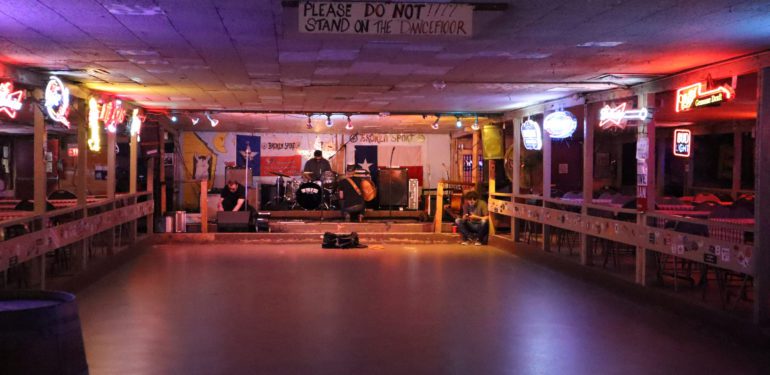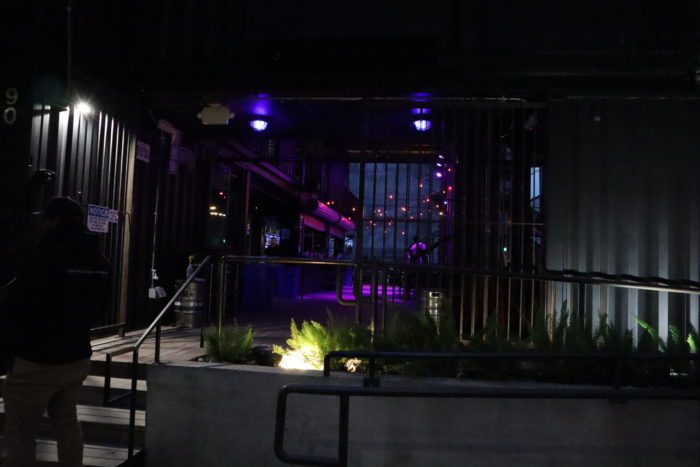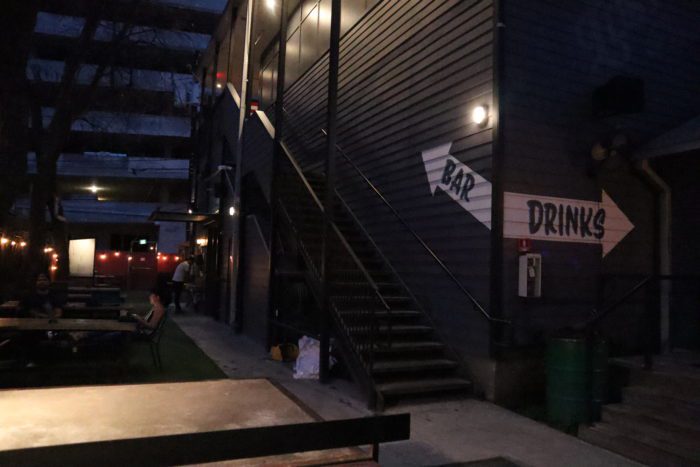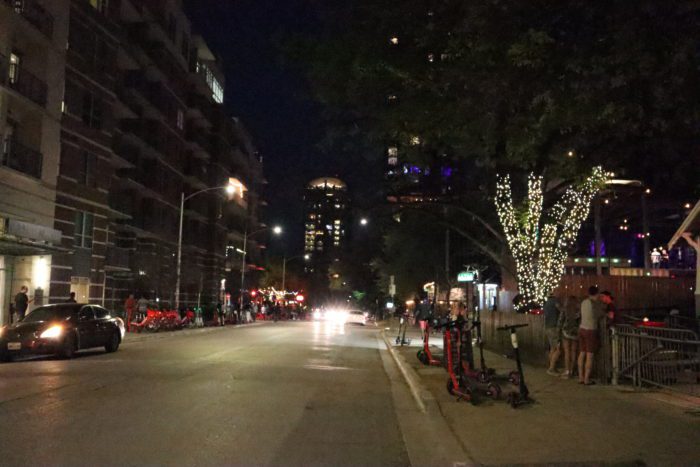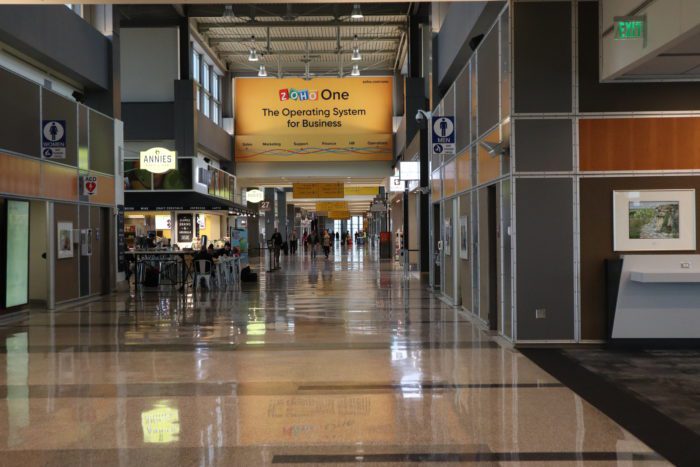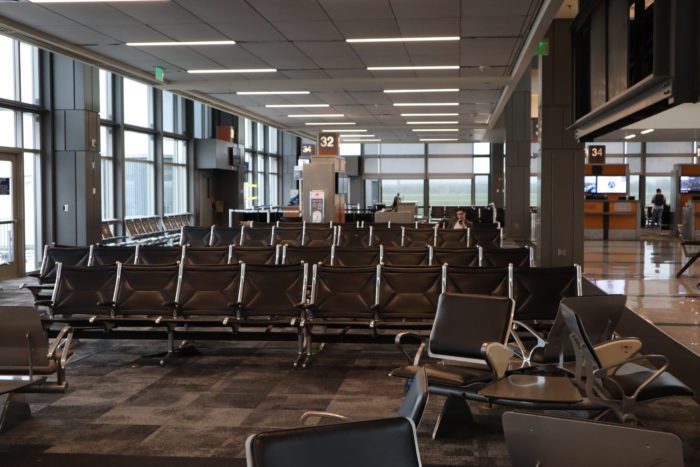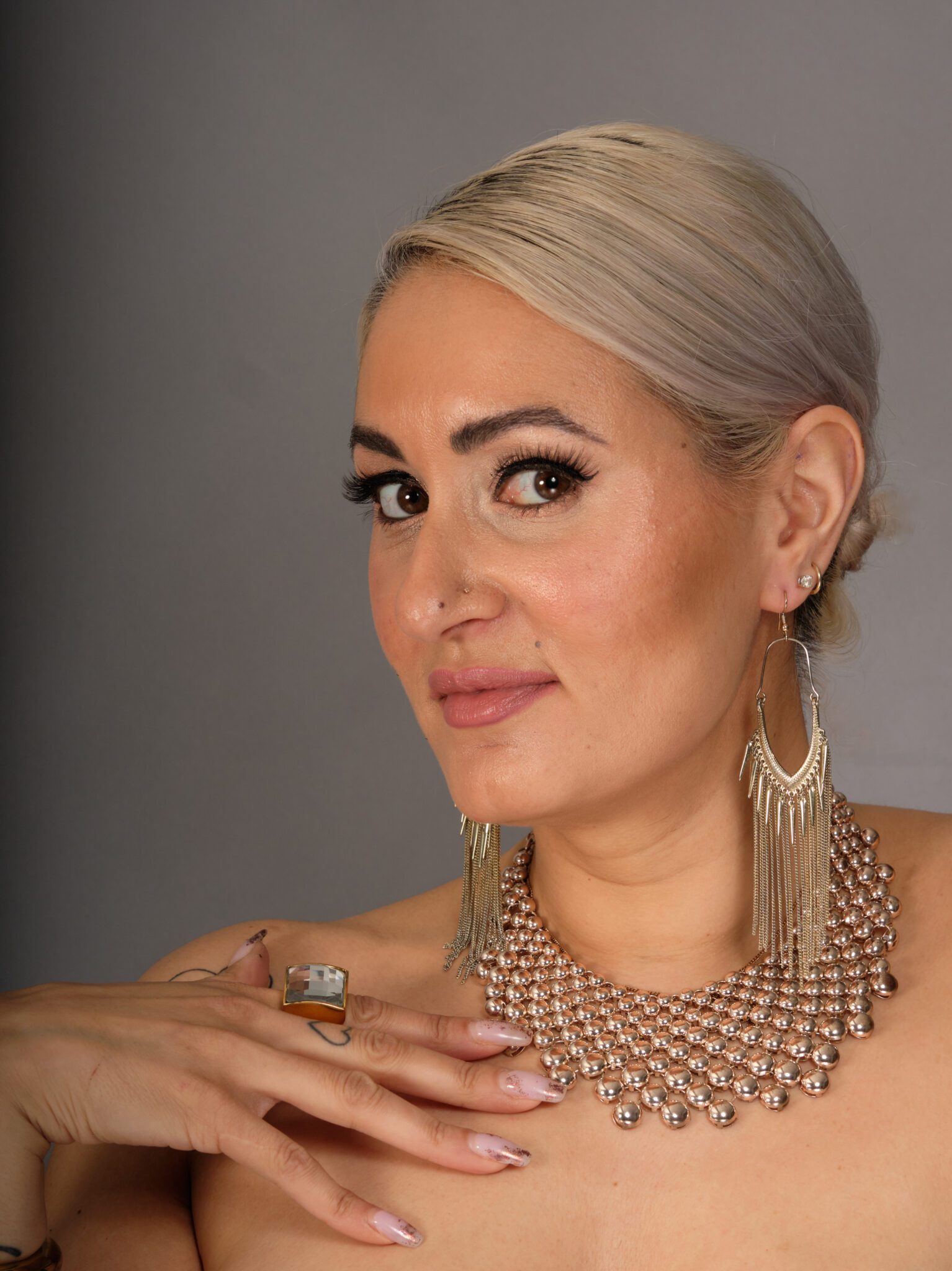Confession time: I am one of the people who traveled in the past few weeks as the COVID-19 crisis escalated. Suffice it to say, the inspiring trip I was hoping for when I left was not the trip I ended up on, thanks to heightening fear, concern and government regulations regarding the virus.
*header shot of the normally packed Broken Spoke bar in Austin, Texas, and all other photos by me
I left Toronto on March 10th to go to Austin, Texas. I had my ticket booked from back in August, and with SXSW cancelled, I thought I’d go down, visit my family there as I do every year, and head home a few days earlier than planned, no harm no foul. However, just a couple of days into my visit, that feeling began to change. You see, in the COVID-19 newscycle, time moves far faster than I think any of us would have expected, and soon enough my few days away began to feel like an eternity.
When I left 10 days ago, the situation felt no where near as dire as it does today. There weren’t many recommendations to social distance yet, gatherings of any size had yet to be discouraged, and we didn’t know you could be an “asymptomatic carrier“. Business was pretty much as usual, aside from recommendations to wash hands frequently and avoid interacting with folks with symptoms. People in Austin were still hoping to salvage what they could in the aftermath of the conference cancellation, and residents and the few visitors alike wanted to support them through that. But as the newscycle progressed, and further messaging out of areas harder hit by the virus continued to dominate headlines and social media feeds, my appetite for socializing, and eating in general (thanks anxiety) began to diminish.
For the few days I remained in Austin, I avoided humans that weren’t related to me, opting to keep contact mostly with the family members I was visiting. While my intention in traveling, aside from family time, was to document what I assumed would be an intriguing DIYSX experience, I instead opted to avoid public gatherings as much as possible. And I wasn’t the only one: the one night I went out into the city to see what was happening, this is what it looked like:
- Container bar on Rainey – would normally have a huge line
- Rainey street – a veritable ghost town
There were a few networking and other events happening while I was in town, but I turned most down, increasingly feeling unsafe at the idea of being indoors with too many people and unable to keep a reasonable distance. I spoke on one panel, sanitizing my hands before and after using my microphone, only participating because the event was outdoors and felt less confining. Now with news that social distancing is required in every way and in every aspect of life, I’m beginning to regret every life choice I’ve made involving human contact since far before going away.
Though my return wasn’t scheduled until March 24th, I booked a new flight home on March 16th. Shortly after, Canada and the U.S. announced that they were closing their borders, and I breathed a sigh of relief and a silent thank you to all of my friends and family blowing up my phone with calls to “come home”. And come home I did, armed with a face mask, from a stash leftover from when my aunt was caring for my ailing and aging uncle, hand sanitizer, zinc throat lozenges and heightened spatial awareness of every human being within a 6 foot radius of me.
- Austin Bergstrom Airport
- would normally be WAY busier
Do I regret going away? Had I any inkling of the rapidity with which this situation would escalate, I can confidently say I would not have traveled, but that wasn’t the case when I made the choice to go. Call it a lesson learned, more pointedly driven home by the incessant anxiety that I may now be complicit in the further spread of a global pandemic, no matter how many times I washed my hands or disinfected my clothing while I was away. It’s times like these when I wish time machines were real. I’m sure many of us feel the same.
Now home, comfortably in self-quarantine, and in between incessantly self-monitoring for symptoms, I’m working to avoid other humans, stay sane and become productive in a time of intense uncertainty, increasing tensions with seemingly no end in sight. So for my own sanity, and the sanity of any fellow humans feeling the COVID-19 blues, I wanted to share what I’ve learned through my own experience, and a few things I sincerely hope we can all start doing to help us all survive whatever Coronoapocalpyse situation we may find ourselves in.
Be kind to one another
My flight home from Austin was, understandably, not very busy at all. And yet, there was still tons of tension in the air. One exceptionally tense moment occurred between a frustrated and anxious family, and a flight attendant who was just trying to do her job. Having to explain that the laws of physics didn’t really care about social distancing with regards to weight distribution was more than our already overworked flight attendant needed to deal with, and the argument did nothing of value for anyone, the family still had to go to their seats (which were frankly more isolated than the seats they were trying to occupy). So when you’re thinking of taking your anxiety and frustration out on that customer service agent, food delivery place or some other innocent human who is just as impacted as you by this pandemic, if not more so, please reconsider. Adding more tension and anger into an already hostile world isn’t going to get us through this crisis any faster. Instead, consider thanking the people you deal with in various service industries for their hard work in a time of need. Shout out to the heroes on the frontlines of our medical systems, looking out for us in this crisis. If you see people cleaning out in the world, thank them: it’s their job to keep the surfaces we touch disease free, making each and every one of us safer and making them heroes. Consider donating to a charity near you that’s looking out for vulnerable folks in this crisis, or joining in on the Caremongering movement by seeing if a quarantined friend or neighbor could use some help, like a grocery run, or picking up their mail. People are going to be second guessing themselves, feeling anxious, guilty, worried and all manner of draining emotions. The kinder we are to each other, the easier this will all be on us all. Which leads me to my next point:
Look out for One Another
We already live in an incredibly isolating society. Social media makes it feel like we’re connected even if we never meet or see each other in real life. While we may have been using social media to distance ourselves from each other before, in COVID-19 reality we are now forced to enforce those physical barriers on a global scale, something that may be a huge adjustment for many of us, and leave many more of us even more isolated than ever, physically and emotionally. Be sure to keep in touch with your elderly friends and family, any differently abled people in your lives, those with compromised immune systems who may have further lost accessibility to our society, or anyone who may be forced to isolate themselves for their own health. If you have friends who are unused to working from home, or who are more extroverted and generally feel better being social and around people, be sure to check in on them. A video chat, a phone call, even a text, could really brighten someone’s day especially if they’ve gone some time without chatting with anyone. If you’re feeling anxious yourself, hearing another person’s voice will do wonders for your own state of mind as well. Social distancing does not have to mean emotional distancing, so keep in touch (safely and remotely) and keep putting love and positivity out there. Which brings me to my last point:
Share good news when you have it
Social media and the news are just a deluge of negativity and stress these days. If you’re already quarantined, or isolated by choice or because of the virus, adding to that isolation and stress with any new information may seem overwhelming, and disconnecting may be incredibly tempting. Try to parse out your social media and news consumption to reputable sources only, to avoid sensationalist news that will likely just make you more anxious without really teaching you anything. Ensure that you’re following your governments guidelines for staying safe during the pandemic (Click here for Canada), which seem to change hourly so be sure to check back regularly. But most importantly, share good news when you can. We’ll all be short on positivity during this crisis, so if it’s your baby having a cute first, your pet entertaining you during your quarantine, a new initiative by someone in your community to help people manage through the crisis, or news out of China showing there may be an end in sight to this crisis, anything that isn’t pure doom and gloom is worth sharing. Sharing positivity through your quarantine will also help encourage others you know to do the same, reminding everyone to do their part during this outbreak and showing us all that we’re going through the same things, and we need to be there for each other through it.
How are you and your loved ones dealing with life in the time of COVID-19? Reach out to us via Twitter at @weraddicted and share your thoughts, quarantine tips and good vibes. We’re all in this together, so let’s do this together.

